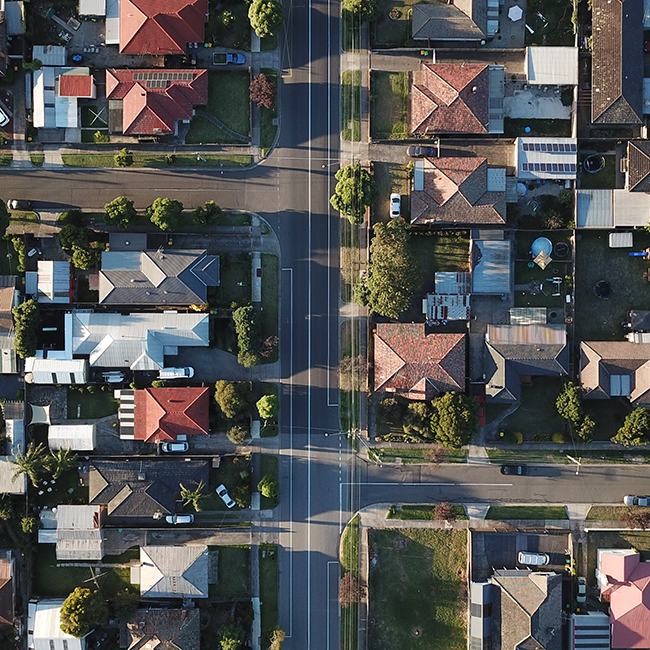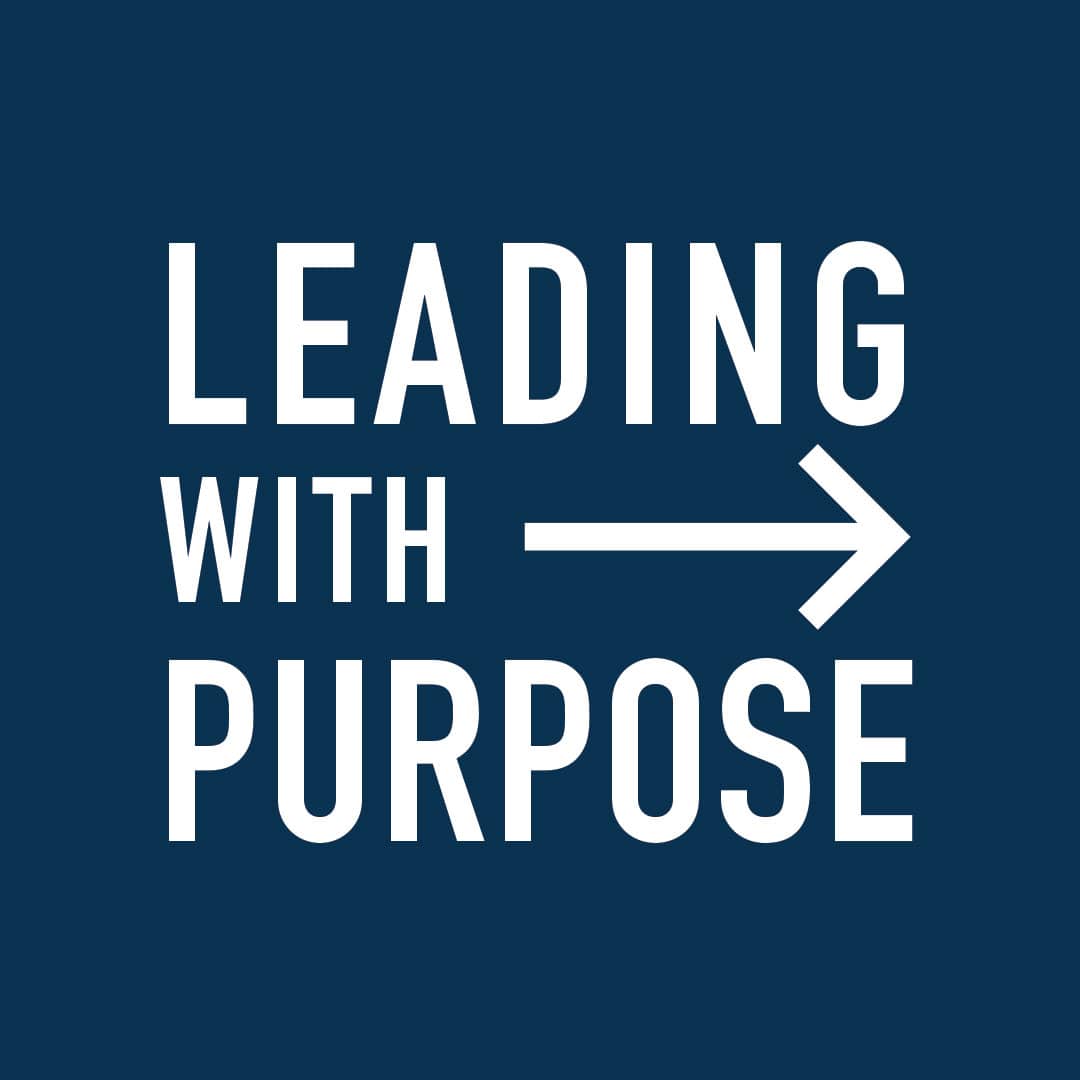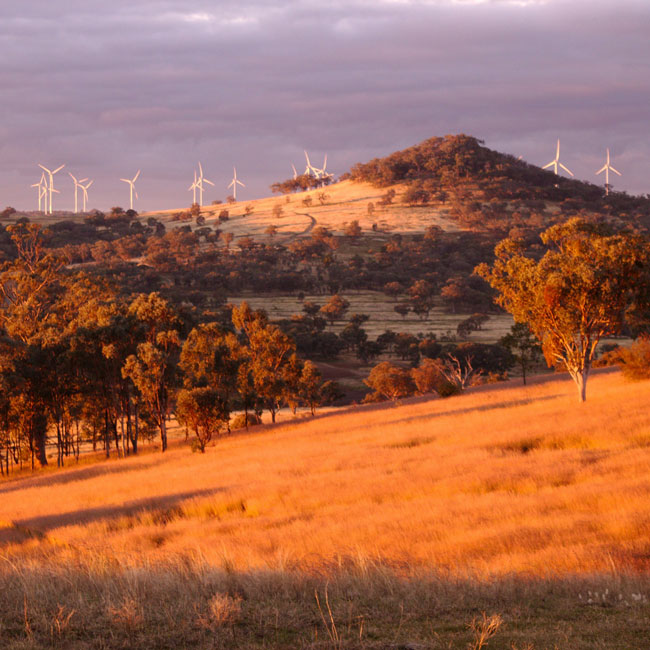Hindsight: James Hardie, 20 years on

Hindsight: James Hardie, 20 years on
Opinion + AnalysisBusiness + Leadership
BY The Ethics Alliance 18 OCT 2021
Two decades ago the scandal surrounding James Hardie switched from the health havoc its products caused to the mishandling of victims’ compensation. In this rare interview with The Ethics Alliance’s Cris Parker, former James Hardie chair Meredith Hellicar reveals how stepping into the firing line left her stronger for the experience.
Corporate scandals can create chaos indiscriminately, far beyond the organisation involved. Lawyers descend, social media accounts are cancelled, computer access denied and journalists start blocking the driveway. Everyone gets hurt. For those who stand accused of transgression, pain is unavoidable. While they try to manage their own crisis, the lives of their families, friends and workmates are also thrown into turmoil.
Meredith Hellicar, former head of James Hardie, is well aware of how unforgiving the Australian public can be. But she still believes it was her duty to step in and help the company she served and the victims of a terrible consequence of its business.
“It has always been inappropriate to speak of the toll this saga took on the personal lives of the board and some executives because of the extent of the horror of dying from mesothelioma,” says Hellicar.
“However, the Hardie people were all humans, too.”
“It has been inappropriate to speak of the toll this saga took on the personal lives of the board and executives … However, the Hardie people were humans, too.”
It’s well documented that ongoing chronic stress can cause or exacerbate many serious health problems. Hellicar says it’s “no coincidence” that one director died of cancer, another had a cancer diagnosis, an investor relations executive suffered a brain aneurysm, an assistant in the office suffered a miscarriage and one of the communications team committed suicide in the two years after the James Hardie scandal became front page news. “But, in the eyes of the public, none of these people deserved anything but derision,” she says.
Lessons learned
Looking back, Hellicar believes there are many lessons – both practical and ethical – from her story for boards and directors in corporate Australia today. Not least that, in a world that demands more corporate governance, keeping up with 1000-page board reports is increasingly impossible. In 2007, the High Court of Australia found the James Hardie board breached its duties by approving the release of a potentially misleading statement to the stock exchange in 2001.
In a world that demands more corporate governance, keeping up with 1000-page board reports is increasingly impossible.
That statement said that the company – which had once dominated the asbestos industry in Australia – had fully funded the foundation responsible for paying compensation to people suffering asbestos-related diseases, such as mesothelioma. It was later found that there was an estimated shortfall in funding of about $1 billion. Justice Ian Gzell of the New South Wales Supreme Court was moved to issue a scathing judgement – and single out Hellicar as “an unsatisfactory witness”.
However, his ruling was controversial. The directors had argued they had not approved the media release. And after appeals in which directors claimed they had been punished enough by the adverse publicity and strong support from prominent Australians, their period of suspension was reduced from five years to two. Talk to many of Australia’s business leaders today and they are quick to voice admiration for Hellicar and respect for the way in which she behaved under fire.
Hellicar had taken the chair of James Hardie from Alan McGregor in August 2004 when his health deteriorated. Hellicar says she wasn’t forced to take on the position of chair, but chose to just before a Royal Commission delivered its report and only weeks before the AGM. As a seasoned director she was well aware this meant she was ultimately responsible for the behaviour of the organisation by being answerable to/accountable for any wrongdoing, regardless of whether or not she was personally culpable and merited condemnation. But she says she felt she was the right person to ensure ongoing support to the victims and reward the shareholders for staying with the company. Australia has the second-highest mesothelioma death rate in the world, with about 700 people dying from it each year. James Hardie’s victims ran a strong media campaign for compensation, fronted by Bernie Banton.
[Hellicar] was well aware … she was ultimately responsible for the behaviour of the organisation … regardless of whether or not she was personally culpable.
At the first opportunity, despite pushback from lawyers, Hellicar apologised to the asbestos victims that the compensation fund had proven to be underfunded. During a judicial inquiry, an investigation and civil action by the Australian Securities and Investments Commission (ASIC), three court cases and a redetermination of penalties over a total of nine years, the seven board members argued they had not approved the statement about compensation funding. Nonetheless, the directors were banned from serving as board members for two years and three months.
Hellicar’s illustrious career had included board positions on AMP, Amalgamated Holdings and the Southern Cross Airport Group. She had also held executive positions such as chief executive of Corrs Chambers Westgarth and managing director of TNT Logistics Asia.
The ban was a shock and the whole process left her “completely destroyed” and “totally reviled”.
Pitfalls for boards
Hellicar speaks of being raised by a father who was a used car salesman and often sacked because he was “obsessed with honesty”. She says honesty is a virtue she herself holds dear. While maintaining that she had tried to do the right thing for people harmed by James Hardie’s asbestos products, Hellicar has accepted the board fell short in its oversight of the executive team.
One of the contributing factors, she says, was “the failure of we directors to fulfil one of the core expectations of company directors; namely, to maintain high-quality peripheral vision and to ask just one more question of management, even in the face of seemingly adequate explanations first time”.
People expect boards to be across absolutely everything occurring in their organisations, but Hellicar says this is an impossible task.
Legal minefields include the assumption of knowledge. If a director has been included on a distribution list of a document, they will have been deemed to have read it, she says.
“Politicians and the media educate society to think that, if you’re the CEO or the board, you have to know everything,” she says. “The moment a CEO says, ‘I didn’t know’, the response comes back: ‘Oh, come on, how could you not know?’”
Before each board meeting, directors receive a board pack of between 200 and 1000 pages that they are expected to read. They may have up to a dozen scheduled meetings each year, extra committee and ad hoc sessions, and serve on several boards.
In an attempt to ensure no stone goes unturned and fully informed decisions are made, corporate governance rules have created an environment that makes it extremely difficult for directors to do their job at the standards expected.
Corporate governance rules have created an environment that makes it extremely difficult for directors to do their job at the standards expected.
Recently at a Governance Institute of Australia function, Philip Chronican, the chairman of National Australia Bank, said: “It’s not enough to turn up to a meeting, review a paper and check that it complies with all the rules and policies … Unless governance has a purpose to it, then it’s just box ticking.”
Hellicar also issued a warning about the tabling of documents at board meetings, “particularly when directors dial into meetings”, she says. “Our US directors on the phone back in 2001 were found by the court at first instance to have approved the release (of the financial state of the compensation fund) because they had not expressly abstained or dissented – even though the court agreed they had not seen it.”
Whether company boards are now ‘fit for purpose’ was the subject of a 2019 paper by Stephen Bainbridge, the William D. Warren Distinguished Professor of Law at UCLA School of Law. “Although directors spend more time on board activities today than they did 50 years ago, they are still ‘part-timers, the vast majority of whom have … employment elsewhere, which commands the bulk of their attention and provides the bulk of their pecuniary and psychic income,” he writes.
Bainbridge argues that directors spend too much time on regulatory and compliance matters, rather than oversight, and suffer a serious ‘information asymmetry’ compared with the full-time executive team.
“Directors … suffer a serious ‘information asymmetry’ compared with the full-time executive team.”
A different standard for women?
Hellicar acknowledges boards have to be held accountable – but she says too often people are demonised when something goes wrong, or a mistake is made. And she feels it is particularly toxic when public shaming leans heavily on questions of sexism.
Catherine Brenner, who was appointed to the board of AMP Life (a subsidiary of AMP), chaired by Hellicar in 2007, stepped down from her role as AMP Chair in 2018. This was in response to issues raised in the 2018 Hayne Royal Commission concerning the preparation of the Clayton Utz report on AMP’s fee for no service issue.
Brenner has been cleared of any personal wrongdoing. However, she was subjected to widespread public criticism regarding her qualifications and much was delivered through a gender lens, describing what she was wearing and questioning her role as a mother.
[Brenner] was subjected to widespread public criticism regarding her qualifications and much was delivered through a gender lens.
Although Brenner stated, “I would not want my experience to prevent others considering a future on listed boards, particularly women, as they bring a very different perspective to men and have much to offer corporate Australia,” the reality is female leadership has stalled.
As of February 2021, 32 per cent of ASX 200 boards are women, but only 10 females hold the CEO roles. Playing an active role in Chief Executive Women (CEW) and the 30% Club, a movement for gender balanced boards, Hellicar feels strongly about the quota merit debate.
“If you have to ask for quotas ‘or’ [make hiring decisions based on] merit then you’re assuming that somehow women are less meritorious than men. There is no evidence at all that women are less intelligent or qualified, none at all!”
Are women subject to more scrutiny and personal abuse when forced to step down from powerful positions? Hellicar says the fact that she was a female in charge intensified reactions.
“I find it ironic that so many of the insults thrown at Julia Gillard – which have, rightly, horrified people – were hurled at me without a word of reproof,” she says. “I received a series of serious death threats, which required security around my home. The media staked out our house from before dawn until after dark, making the trip to school each morning with our daughter both hazardous and stressful for us all.”
Hellicar’s reading of the situation is backed by research, including a study of financial advisors by Mark Egan and colleagues at the Harvard Business School in 2018. Looking at what happens when advisors make mistakes, the researchers found that female financial advisors are 20 per cent more likely to be fired for misconduct than men. They are also 30 per cent less likely to find another job in the industry.
A lack of forgiveness, combined with the vilification of those who knowingly or unwittingly transgress, means that people are under enormous pressure to cover up their errors. The punitive response discourages the sort of transparency that leaders require to deal with risk.
Hellicar says if she had a magic wand, she “would simultaneously inject everyone with this huge dose of kindness and a huge dose of ‘speak up when you see something that you think is wrong’”. She quotes her former James Hardie board colleague, Peter Willcox, who said: “Bad news isn’t like wine. It doesn’t get better with age.”
“Bad news isn’t like wine. It doesn’t get better with age.”
Make a mistake and rebound
Losing her career in the boardroom has had bittersweet consequences for Hellicar. Psychiatry had been a consideration in her university days and realising no ASX-listed company would risk appointing her to the board for fear of persecution, Hellicar reinvented herself by studying a Masters degree in Psychotherapy.
She is now an executive coach (as Australia and New Zealand executive chairman of Merryck & Co.), volunteers as a crisis counsellor with Lifeline once a week and is a mentor for public school students. Hellicar feels you can’t be successful in mentoring roles “unless you’ve got things in your life you’d wish you’d done better”.
Hellicar believes our penal system should be focused on rehabilitation rather than punishment but says that people often (not always) deserve a second chance. She has found strengths of reserve to emerge from the corporate shaming she experienced and is now an active contributor to the ethical education of business leaders and corporate women.
“I have a view that, surely, people are entitled to do something stupid – and they’ll be forgiven. But that’s not how the community thinks anymore. For some reason, we don’t believe people should be allowed to recover from their mistakes,” she says. But “we know people can learn from their mistakes”. The very fact that people have faced a traumatic public failure will sometimes leave them “richer for the experience”.
“Surely, people are entitled to do something stupid – and they’ll be forgiven.”
She adds: “In the US, the more scar tissue you have, the more sought-after you are. Not in Australia.”
“Surely, people are entitled to do something stupid – and they’ll be forgiven.”
The Ethical Lens
Cris Parker
Head of The Ethics Alliance
The Ethics Centre Nearly two decades have passed since Meredith Hellicar’s experiences at James Hardie. What can we learn?
1. Respect for person is one of the primary principles in ethics and refers to the consideration and empathy that any human being deserves simply by virtue of being human. It calls on us to respect the intrinsic dignity of anyone. The way we behave towards other people is an expression of our own character and values and so treating people with respect is not motivated by whether they deserve it but rather because doing any less would diminish our own character.
2. Diversity is essential as boards look to navigate the increasing dynamic and complex issues organisations face today – not least to mitigate biases which can either silence voices, such as authority or status quo bias, or which can lead to individuals seeking out like-minded counterparts to corroborate their point of view, such as confirmation bias or group think.
3. Decisions in the board room require stakeholder trade-offs. An organisation possessing a strong ethical foundation developed through a well-defined purpose, values and principles will assist boards as they navigate competing interests and guide decision-making that is just and good.
4. A positive culture in the boardroom is built on transparency and accountability. This means an environment where directors can ask the hard questions, and where executive management are encouraged to share bad news without fear of persecution.
This article was published as part of Matrix Magazine, an initiative of The Ethics Alliance.
Ethics in your inbox.
Get the latest inspiration, intelligence, events & more.
By signing up you agree to our privacy policy
You might be interested in…
Opinion + Analysis
Business + Leadership
Moral injury is a new test for employers
Opinion + Analysis
Business + Leadership
Ask the ethicist: Is it ok to tell a lie if the recipient is complicit?
Opinion + Analysis
Business + Leadership, Politics + Human Rights
Housing affordability crisis: The elephant in the room stomping young Australians
Opinion + Analysis
Business + Leadership
Give them a piggy bank: Why every child should learn to navigate money with ethics
BY The Ethics Alliance
The Ethics Alliance is a community of organisations sharing insights and learning together, to find a better way of doing business. The Alliance is an initiative of The Ethics Centre.
Vaccination guidelines for businesses

Vaccination guidelines for businesses
Opinion + AnalysisBusiness + LeadershipPolitics + Human Rights
BY Simon Longstaff 14 OCT 2021
Businesses are having to address complex ethical questions about the extent to which a person’s vaccination status should be a condition of employment.
Here are some guidelines to consider:
1. There is a difference between a mandatory requirement (where there is no choice) and a condition of employment (which people can choose to meet as they think best).
Many jobs impose conditions of employment that relate to a person’s health status (including whether or not they have been vaccinated).
2. Respect and promote the maximum degree of freedom of employees – limited only by what is required to meet one’s obligations to others.
In determining this it’s important to consider:
- The nature of any duties owed to other people – including employees, customers, and members of the community more generally.
- The specific context within which people will come into contact with your employees e.g. frequency, proximity, location – and estimate the way these variables shape ‘the risk envelope’.
3. Determine if a legitimate authority (e.g. a government) has made any rules.
This includes Legislation, regulation, public health orders, etc. that determine how the business must act. For example, governments may set license conditions that ‘tie the hands’ of specific employers.
4. Actively seek alternative means by which employees might perform their roles, even if they are not vaccinated.
Note, alternatives must be practical and affordable.
5. Determine who bears the burden (including the cost) of alternative measures.
For example, should employees who choose not to be vaccinated be required to be masked, or to use rapid antigen testing at their expense?
6. Consider how roles might be reassigned amongst the unvaccinated.
With priority given to those with medical exemptions.
7. Treat every person with respect – ensuring that no person is ridiculed or marginalised because of their choice.
But note that respect for one person or group does not entail agreement with their position; nor does it void one’s obligations to others or your right, as an employer, to advance your own interests.
8. Be prepared to adjust your own position in response to changing circumstances.
Including evidence based on the latest medical research relating to vaccine safety and efficacy, etc.
Read more on the difference between compulsory and conditional requirements here.
Ethics in your inbox.
Get the latest inspiration, intelligence, events & more.
By signing up you agree to our privacy policy
You might be interested in…
Opinion + Analysis
Business + Leadership, Relationships
What makes a business honest and trustworthy?
Opinion + Analysis
Business + Leadership, Relationships
The transformative power of praise
Opinion + Analysis
Society + Culture, Politics + Human Rights
‘The Zone of Interest’ and the lengths we’ll go to ignore evil
Opinion + Analysis
Business + Leadership
New framework for trust and legitimacy
BY Simon Longstaff
Simon Longstaff began his working life on Groote Eylandt in the Northern Territory of Australia. He is proud of his kinship ties to the Anindilyakwa people. After a period studying law in Sydney and teaching in Tasmania, he pursued postgraduate studies as a Member of Magdalene College, Cambridge. In 1991, Simon commenced his work as the first Executive Director of The Ethics Centre. In 2013, he was made an officer of the Order of Australia (AO) for “distinguished service to the community through the promotion of ethical standards in governance and business, to improving corporate responsibility, and to philosophy.” Simon is an Adjunct Professor of the Australian Graduate School of Management at UNSW, a Fellow of CPA Australia, the Royal Society of NSW and the Australian Risk Policy Institute.
John Elkington on business sustainability and ethics

John Elkington on business sustainability and ethics
Opinion + AnalysisBusiness + Leadership
BY The Ethics Centre 11 OCT 2021
John Elkington is a world authority on corporate responsibility and sustainable development. Elkington sat down with The Ethics Centre’s Simon Longstaff to chat about the future of business sustainability.
“I first got involved in the business world in the mid-70s, at a time when business really didn’t want to talk to people who were self-described environmentalists or anything like that. And yet I was an environmentalist.”
John Elkington believes his admiration for the natural world began when he was six or seven. He found himself alone in the middle of a field in Northern Ireland at night, in complete darkness, and to his surprise he looked down and his feet were surrounded by tens of thousands of baby eels. “I put my hands down in the dark and had these things wriggling through my fingers. And I had one of these sort of absolute panic attacks followed by something really quite profound, which has never left me somehow,” he says. “It was a sense of connection.”
Audio: Listen to John Elkington talk about his childhood experiences.
John Elkington has dedicated his professional career to corporate responsibility and sustainable development. In the early 80s, he set up a company called Environmental Data Services, and within 18 months was helping major companies write their first environmental policy statements. His idea was: you can make or save money by doing the right thing on resources and environmental protection. “Even if you’re a small or medium size enterprise you can have a catalytic effect,” he says. “But by the time you get to the size of an Exxon Mobil or a BP or a Shell then you really are having major economic impacts.”
John Elkington on the corporate responsibility movement.
“I think for the last 40 years, business has been encouraged to be more responsible. More transparent and more accountable. The responsibility agenda continues to evolve and expand. And now we’ve got wealth divide on the agenda. We’ve got public access to health care issues. We’ve got tax evasion – more and more issues are coming in which companies are going to have to deal with.
“But the problem is that the whole corporate responsibility movement, of which I’ve been part for so long, has failed in the sense that the systems that we depend on are all wobbling. Our economies are coming apart at the seams – our governments, the political systems, are doing the same. Our societies are under challenge and the biosphere is wobbling in a way that we haven’t seen for a very long time. So corporate social responsibility, as much as I love it, isn’t working.
“Our generational task now is economic, social, environmental, political and cultural regeneration. And the problem is that our current political classes weren’t trained for it. They talk about recovery, but they mean how can we get back on the previous set of rails? And I think the debate now has to be very different.”
Audio: John Elkington talks about the path ahead for corporate responsibility.
Is John Elkington optimistic about the future?
“I think people are increasingly aware that the old order can’t hold, things are coming apart and that’s not going to stop just because we have a new American president. We put on a conference in London in 2020, called the Tomorrow’s Capitalism Forum, and the tagline was “step up or get out of the way”. Now, if you’re in coal that’s not an idea you’d like to embrace if that’s your business. But I think we have misread the urgency of the sort of cataclysmic system changes that are coming towards us. It’s like a tsunami. And it’s very difficult to ride a tsunami. I think we’re now faced with the consequences of what we and previous generations have been doing since the industrial revolution, at least. And we have a very, very short period of time in which to get our act together.”
“I think at the moment, business leaders and some finance leaders are proving more interesting than many political leaders. But this is a political challenge and the politicians have to wake up and get involved.”
Audio: hear John Elkington talk more about tackling climate change.
What keeps John Elkington awake at night?
“We need system change and cultural shifts, which the older generations are going to find profoundly dislocating. One of the things that worries me more than almost anything else is the intergenerational dynamics in all of this. In so many parts of the world you have very rapidly aging populations, and an aging population takes people increasingly to conservatism because they’re only investing for a shorter period of time. So I think there’s a real potential for anger to build up in younger populations. I’m surprised we haven’t seen more of it.”
“I’m 71 but oddly, I feel the next 15 years are going to be the most exciting of my life and the most challenging and the most dangerous politically.”
“We’re in a time of immense turbulence and people will suffer. There will be conflicts, tensions and stresses, which at times will be off the scale. But at the same time I think this is the most exciting period in our collective history, probably for hundreds of years. I’m very excited about the potential because I think it is when old systems come apart that the potential to drive systemic change goes off the scale. So the challenge for leadership I think is immense. And I think in many ways universities and business schools are not yet properly preparing people for that new world.”
John’s advice for future business leaders:
- Get out of your comfort zones and be exposed to different realities.
- Challenge your sense of who you are and what you should be doing.
- Question whether the systems you work in are still fit for purpose.
Audio: Listen to the podcast of John Elkington’s full discussion.
John Elkington is a world authority on corporate responsibility and sustainable development. He is currently Founding Partner and Executive Chairman of Volans, a future-focused business working at the intersection of the sustainability, entrepreneurship and innovation movements.
This episode was made possible with the support of the Australian Graduate School of Management, in the School of Business, at the University of New South Wales. Find out more about other conversations in the Leading with Purpose podcast.
Get more articles and podcasts like this by signing up to our Professional Ethics Quarterly newsletter here.
Ethics in your inbox.
Get the latest inspiration, intelligence, events & more.
By signing up you agree to our privacy policy
You might be interested in…
LISTEN
Business + Leadership
Leading With Purpose
Opinion + Analysis
Science + Technology, Business + Leadership, Society + Culture
AI and rediscovering our humanity
Opinion + Analysis
Business + Leadership, Politics + Human Rights, Relationships
After Christchurch
Reports
Business + Leadership
Ethics in the Boardroom
BY The Ethics Centre
The Ethics Centre is a not-for-profit organisation developing innovative programs, services and experiences, designed to bring ethics to the centre of professional and personal life.
Holly Kramer on diversity in hiring

Holly Kramer on diversity in hiring
Opinion + AnalysisBusiness + Leadership
BY The Ethics Centre 11 OCT 2021
Holly Kramer, Non-Executive Director on the Boards of Woolworths and Fonterra Group, and Pro Chancellor at Western Sydney University, sat down with the Ethics Centre’s Simon Longstaff to chat about the future of business sustainability.
Holly Kramer believes that responsible management has grown in significance exponentially over the last five to ten years. She suggests the old Milton Friedman view of shareholder primacy is a thing of the past, and shareholders are now holding businesses to account and demanding they do the right thing for society.
“There’s a spectrum of different approaches to business stewardship,” she says. “There are those people who don’t understand the way the world has shifted in its attitudes toward corporate responsibility at all. There are those who do understand and “do the right thing” because they know that’s what’s expected of them, and then there are those who do the right thing because it’s simply the right thing to do.”
In the past, business decisions were generally made through the lens of profitability, and the time frame was – at most – a three year view; whereas today, management and boards must take into account the impact of their decisions on multiple stakeholders over longer time horizons, which can sometimes make those decisions seem more challenging.
“Companies are trying to change their metrics of performance. In many companies I’m involved with, you’re measured on financial and non-financial measures; and there is consideration of not just what you’ve achieved but how you’ve gone about it. They’re sometimes called “softer” skills or metrics, but I don’t agree with that characterisation. Acting sustainably requires a broader skill set and tough decisions. A new generation of business leaders are coming through, and they believe it’s important for businesses to be sustainable on every dimension – including diverse and inclusive workplaces, climate friendly practices, meaningful community engagement and leading with purpose.”
“At the end of the day, it’s critical that you hire the right people, people who understand that the decisions they make have a broader impact than just the bottom line. That’s what’s going to make the biggest difference for your business in the long run.”
Audio: Listen to Holly Kramer chat about reconciling doing the right thing with remaining profitable.
Holly Kramer on her career challenges.
“When I was in the telecommunications industry, there was a lot of money to be made from complexity. There were multitudes of calling plans; customers usually struggled to figure out what was the right solution for them. Customers told us that they wanted simplicity. Yet every time we looked at how to make them more simple, we couldn’t make the business case stack up. And so there were often internal struggles within the organisation. We were told: ‘look, if you do this, it will be an NPV negative business case, so we just can’t do it’.
“And while we battled with one another internally, ultimately what happened was that the competitors got there first, gave customers what they wanted and we lost market share as a result. I’ve always believed that when, on first glance, the numbers may not stack up, ultimately either competitors or customers will have the final say.”
Holly Kramer on responding to consumers.
Holly Kramer got her start in marketing, and she leveraged that skill when she started running an affordable fashion brand, so she was well aware that for a business to be successful it must reflect changing consumer needs. “Our starting point was to try and understand our customers as well as we could. Lots of research, lots of personal interaction. We learned early on, for example, that the industry’s idealised version of clothing models – young, skinny, and not diverse – didn’t resonate at all with our customers. They wanted to see the clothes look good on people that looked like them. And to feel good about themselves without the industry defining beauty for them.”
The problem with fashion supply chains.
Simon: “The fashion industry is now having to deal with the question of supply chains. There’s the modern slavery legislation, there’s a consciousness about environmental, social, a range of different issues, but I’m particularly thinking at the moment in the fashion industry where people were selling things like a $1 t-shirt – I really don’t know how anyone can think it’s possible to produce something for so low a price without it having adverse effects for the labour standards in the countries where they’re produced. And I think you encountered some of this during the time you were in the industry?”
Holly: “I was in the fashion industry … when the Rana Plaza tragedy happened in Bangladesh, which focused a lot of the world’s attention on human rights and ethics in the supply chain. However, I was working for a business in Australia that was owned by a parent company in another country. They were from a disadvantaged part of the world that had different standards for what was acceptable practice. And I remember getting challenged about our sourcing decisions because they (the parent company) simply had different standards and priorities than we did. But we had to do what we thought was right and also be consistent with community standards in Australia, where it was important to ensure fair employment practices were maintained in the companies who supplied us.
“The other issue was that a lot of the companies, to mitigate their reputational risk, just pulled their business out of Bangladesh. The problem with that is that you put jobs at risk in countries where the employees are most vulnerable. We had to ensure that our business was commercially viable, but also that we were doing the right thing by the countries we were sourcing from. It’s important to remember that there are no simple solutions. Companies need to consider the outcomes from a number of different angles.”
Audio: Listen to Holly chat about grappling with the ethics of fashion supply chains.
On accounting for diversity.
Over her decades working in the business sector, Kramer has seen boardrooms grapple with the idea of diversity and representation. “Gender is just one proxy for diversity,” she says. “It’s a starting point and it’s easy to measure.”
Kramer believes true diversity lies in having an array of people contributing ideas and solutions and having an environment where different ideas are welcomed. “It’s definitely important, but I don’t necessarily see gender as the most important starting point for diversity. I find it is usually cognitive diversity. Introverts and extroverts. People who like data and people who use intuition. Risk takers and those who are more risk averse. She says she’s always looking for new people who think differently to her because it makes good business sense. Gender is important, and thankfully business has made a lot of progress in that space, but Kramer feels there needs to be ethnic diversity, socioeconomic diversity, as well as generational diversity, which is just as important to achieve.
Holly’s advice for emerging leaders:
- Doing the right thing is good business
- Approach challenges with a long-term lens
- Put yourself in the position of your customers
AUDIO: Listen to the full podcast with Holly Kramer here>>
Holly Kramer is a Non-Executive Director on the Boards of Woolworths and Fonterra Group, and she is Pro Chancellor of Western Sydney University. Formerly, she was Deputy Chair of Australia Post and Chief Executive Officer of Best & Less. She has more than 25 years’ experience in general management, marketing and sales including roles at the Telstra, Pacific Brands and Ford Motor Company.
This episode was made possible with the support of the Australian Graduate School of Management, in the School of Business, at the University of New South Wales. Find out more about other conversations in the Leading with Purpose podcast.
Get more articles and podcasts like this by signing up to our Professional Ethics Quarterly newsletter here.
Ethics in your inbox.
Get the latest inspiration, intelligence, events & more.
By signing up you agree to our privacy policy
You might be interested in…
Opinion + Analysis
Business + Leadership, Science + Technology
Is it ok to use data for good?
Opinion + Analysis
Business + Leadership
How can Financial Advisers rebuild trust?
Opinion + Analysis
Business + Leadership, Health + Wellbeing
Tips on how to find meaningful work
Explainer
Business + Leadership
Ethics Explainer: Ethical Infrastructure
BY The Ethics Centre
The Ethics Centre is a not-for-profit organisation developing innovative programs, services and experiences, designed to bring ethics to the centre of professional and personal life.
Does Australian politics need more than just female quotas?

Does Australian politics need more than just female quotas?
Opinion + AnalysisBusiness + Leadership
BY Joshua Pearl 8 OCT 2021
The Labor Party’s recent decision to parachute Kristina Kenneally into the ethnically diverse electorate of Fowler came at the expense of Tu Le, a female Australian lawyer of Vietnamese background.
The decision revealed two things about politics in Australia. First, that female quotas work. Second, that if you are an Australian of Asian heritage, it’s difficult to join the political class. This is not news. The 2018 report by the Australian Human Rights Commission found that while nearly 21% of Australians are from a non-European background (excluding First Nations people who comprise an additional 3%), they make up just four per cent of Australia’s federal politicians.
Scrolling though the list of Australian leaders reveals this lack of representation. Scott, Dom, Dan, Mark, Steve, Pete, Andrew and Mike run the country, alongside one woman, Annastacia. Not one is of non-European background.
It is hard to understate the importance of a representative political class. A political class that acts in its own interests, or in the interests of a select few, is quite simply, not a democracy. A monarch rules to ensure power stays in the family line. An autocrat rules in his self-interest. In a civilian dictatorship, political decision-making rewards some and punishes others, as shown by the Russian and Chinese experience (think Chechens and Uyghurs respectively).
But a democracy is different. And democracy, at its core, is political decision-making that reflects the preferences – and better still, the interests – of the electorate. It is what drives democracy’s ability to achieve broad based economic growth. And it is what underpins the Nobel Prize winner Amartya Sen’s findings that “no substantial famine has ever occurred in any independent country with a democratic form of government and a relatively free press”.
When a democracy’s political class fail to reflect their society, they almost certainly fail to make decisions that best serve the electorate’s interests.
Consider Anthony Albanese. Albanese knows his own interests. He will have a reasonable understanding of other fifty-year-old blokes from Marrickville. But the further he moves out, the less understanding he has. I suspect he does not properly understand the concerns of a typical thirty-year-old woman, and I am nearly certain he has no real sense of the needs and wants of politically under-represented groups such as the Vietnamese community. When Albanese makes decisions that affect politically under-represented communities, it is hard to see how he could be appropriately informed.
An identical point can be made with respect to the Prime Minister, Scott Morrison. Simply replace Marrickville with Cronulla. It is this very reason why country folk want their local members to be country folk, and not people who, living in the city, neither understand the nuances of rural issues, nor have the same “skin in the game”, so to speak.
There are three principal ways to achieve a more representative political class: grassroots movements, targets and quotas. The logic for grassroots movements is that when party members better reflect Australian society, this translates into a similarly representative political class. But the proof is in the pudding. The Liberal and Labor Party have been compelled to introduce female quotas and targets because they have found grassroots movements to be insufficient. Targets are what is hoped for, but are not binding. But based on the Liberal Party’s experience with its target of 50% female representation across Australian parliaments by 2025, targets seem similarly impotent. Women account for just 28% of Liberal parliamentarians.
The most effective method to ensure the political class reflects society is quotas, something borne out by the international experience in Canada, New Zealand, Mexico and Sweden, and the domestic experience of the Australian Labor Party. When Labor first introduced female quotas in 1994, 13% of federal Labor parliamentarians were women. Today it is 48%.
There are a number of arguments against quotas. One is that quotas undermine politicians who are members of the quota group. But is Penny Wong’s career tainted by the fact that Labor has a female quota? And would we really think any less of Julie Bishop or Gladys Berejiklian had the Liberal Party had female quotas?
Another is that quotas are not “very democratic”. But this misunderstands democracy. Democracy is about collective decision-making that is responsive to the interests of citizens. It is not an unfettered Labor and Coalition duopoly, led by a handful of party executives and the estimated 1% of Australians who are party members (and if you think it is not a duopoly, try and name the last federal cabinet minister who wasn’t a member of one of these parties). Both groups have obligations that stretch beyond party members, and extend to all Australians. But do they recognise these duties? And how easily are they set aside when at odds with the interests of the party or the individual politician?
The argument against quotas that appears to have some merit is that quotas risk overruling other desirable characteristics such as intellectual capacity, political charisma or work ethic. This is not to say that under-represented groups don’t have equally great candidates. Rather, it acknowledges that in snap elections, or when relevant political branches or parties are disorganised or dysfunctional, the need to meet quotas may trump other factors.
And yet this overstates the purity of our preselection system. Deals get done. Mistakes happen. There are poorly qualified politicians who have won out over better qualified people. Sometimes the individuals we elect are criminals and other times they simply aren’t up to the job. It is unlikely well-defined quotas undermine the quality of our political class. Indeed, the evidence is pretty clear that the current system has led to the election of people who would never get into parliament if merit was the determining factor.
The argument for quotas based on ethnic or cultural background, sexual orientation or disability status, is not a popular one. Yet if female quotas are justified, it is difficult to see how quotas for other under-represented groups are not equally justified. There is, naturally, a limit to the number of groups that can be included. Groups would need to have a certain critical mass, be qualitatively different to other groups and be comprised of members of relevantly similar backgrounds.
But if we are serious about the need for the political class to reflect society, we should be serious about quotas for more than just women.
A qualification to this general argument is that all who are elected in a representative democracy are bound to bring their best judgement to bear when acting in the interests of the electorate as a whole. That is, the fact a person comes from a particular group does not mean they are its ‘delegate’. The point about quotas is not that one’s identity enables or precludes the possibility of providing ‘representation’ in this broader sense. Rather, quotas ensure that a diverse electorate can have confidence that when judgement is exercised then it will be informed by a range of considerations that include the experiences of all.
An Australian parliament without women or Indigenous people, without rural representatives, or without people of Asian heritage, cannot meet the range of interests of the electorate.. A broader quota policy would help Australia realise a more legitimate version of democracy. It may also mean that added to the names of Bob, Paul, John, Tony, and Julia, is a name like Tu or Dai.
Ethics in your inbox.
Get the latest inspiration, intelligence, events & more.
By signing up you agree to our privacy policy
You might be interested in…
Opinion + Analysis
Business + Leadership, Politics + Human Rights, Science + Technology
Not too late: regaining control of your data
Opinion + Analysis
Business + Leadership
It’s time to talk about life and debt
Opinion + Analysis
Business + Leadership, Politics + Human Rights
Can philosophy help us when it comes to defining tax fairness?
Opinion + Analysis
Business + Leadership, Society + Culture
The Ethics Institute: Helping Australia realise its full potential
BY Joshua Pearl
Joshua Pearl is the head of Energy Transition at Iberdrola Australia. Josh has previously worked in government and political and corporate advisory. Josh studied economics and finance at the University of New South Wales and philosophy and economics at the London School of Economics.
Dame Julia Cleverdon on social responsibility

Dame Julia Cleverdon on social responsibility
Opinion + AnalysisBusiness + Leadership
BY The Ethics Centre 27 SEP 2021
Dame Julia Cleverdon DCVO CBE is a passionate and practical campaigner who has gained an international reputation for ‘connecting the unconnected’. Cleverdon sat down with The Ethics Centre’s Simon Longstaff to chat about the future of business sustainability and social responsibility.
Dame Julia Cleverdon remembers working in the business world in the UK in the early 1980s. Margaret Thatcher had been in power for a few years and had made clear her position to not intervene to save shipyards or coal mines. To Cleverdon, it felt like “the whole country was in flames”. In 1981, there was a series of flash riots across Britain largely triggered by high levels of youth unemployment, particularly in some of the poorest areas in Britain: Nottingham, Liverpool and parts of London.
At the time, Dame Julia was working for a leadership organisation called the Industrial Society, and was tasked with answering the question: what can businesses do to make a difference in communities? “We discovered that you were five times more likely to be unemployed if you were a black teenager than if you were a white,” she says.
“Although the riots weren’t race riots, they were young people in mass affected by what was going on in society. And the business world with whom I had been working quite closely at the Industrial Society were absolutely amazed and said ‘where’s this come from? The Molotov cocktails bouncing our boardroom tables is very bad for business. Where’s this come from? And what should we do about it?’”
Answering these questions became Dame Julia’s defining agenda for the 1980s.
“Being responsible was going to be a better long-term business than being irresponsible.”
Dame Julia Cleverdon has been in business for over four decades and says a lot has changed. “Some businesses that I’ve known for 40 years have not wavered from believing that there is only a commercial case,” she says, “while other businesses have had something in their DNA which means that they are more likely to care about the impact they have on society.”
She jokes that she read The Times death column every morning in order to see, “which maddening old culture has popped their clogs and was no longer running their business,” so she could try to persuade their successor to do business differently.
When asked whether business leaders have learnt from the mistakes of 1981, Dame Julia isn’t sure. “I think the UK is very interesting and specific. It has a great challenge because in a way so much of our success in the last 20 years has been built on the financial services and the enormous growth and power of London.
“London’s a global centre for private equity, for technology, but not enough people have come out of that overblown size to understand what was actually going on in the North. And if you look at some surprising decisions that Britain has taken in the last 10 years or so you say ‘what caused you to believe that coming away from Europe and the European relationships that you had since the Second World War, why did you think that was a good idea?’
“And you look at where the voting patterns were – the voting patterns were almost entirely the part of the North. Where Boris Johnson and this government are at the moment is that they won this enormous landslide last year, the 80 seats that had previously been owned by the Labor Party, because their approach on Brexit was what accorded with those in the poorer places of the North.
“They don’t know what life is like up here where fishing boats aren’t working, businesses have shut, our schools are very poor. Nobody seems to care about the quality of education.”
“In the lead up to 1980 business failed to notice this bubbling discontent, which then erupted into riots and cities burning. In the 2000s, they failed to notice the discontent in the North, which then gave rise to Brexit, which was clearly something that the business community did not welcome for the most part. And so on two occasions within the memory of people alive today, there’s been a failure.”
Julia Cleverdon on her ‘teach first’ initiative.
“One of the things that causes me to reflect is that between 2001 and now, 20 years later, I’ve seen the most enormous growth of graduates in Britain who want to come into the front line of public service as teachers, police officers, social workers. I was there at the start of something called Teach First, which was persuading the cleverest university graduates in Britain that they should come and teach in the poorest schools. The mating call of the posh ‘come and work in this unbelievably swanky very well-paid private sector, commercial job’, and I would say to them, ‘no, no, you can go on and do that later but first come and understand what the issues are of educational inequity in Britain’.”
What are the major challenges for the role of business in society?
“The issue is about whether businesses listen to what’s going on in society. When you listen to the people of Blackpool gathered together for two hours on a Zoom call during a global pandemic you think this is absolutely indescribable.
“Take the inequity of access to broadband, digital and tech kit. What COVID lockdown in the UK has shown us is that actually probably 70% of kids in the poorest communities have no access to digital kit at home. You may have one phone between the family and you’re not going to get everybody’s lessons downloaded on that one phone. The cost of being on Pay As You Go to get the lesson downloaded means that you can be spending £160 a week on data getting a family of six kids their lessons.”
AUDIO: Julia Cleverdon on her work within the Blackpool community.
Is Dame Julia Cleverdon optimistic?
“The thing that keeps me optimistic is, I’ve always worked with young people, but I never worked so extensively with young people as I have in the last seven years on a great campaign called the #iwill Campaign. And what has really fired me up is the passion, energy, belief and purpose of under 25-year-olds. I do believe that the business world par excellence has to innovate all the time to be ahead of the game. And the cleverest businesses understand that innovation is best done through diversity and diverse experiences. Therefore how you recruit, how you manage, has got to ensure that you’ve got a diversity of views.”
“The other thing is the passion of the young for the causes that I’ve cared about all my life. So I don’t worry anymore about climate change. You watch Greta [Thunberg], you watch the primary school strikes that we had in Britain and you see corporates realising they’re not gonna be able to survive and thrive if they don’t take that into account. So no, I remain an optimist even though I’m 70.”
AUDIO: What keeps Julia Cleverdon optimistic.
Julia’s advice for emerging business leaders:
- Spend time embedded in different communities to enhance your perspective
- Don’t just learn from books – get out into community
AUDIO: Listen to the full podcast with Dame Julia Cleverdon.
Listed by The Times as one of the 50 most influential women in Britain, Dame Julia Cleverdon DCVO CBE is a passionate and practical campaigner who has gained an international reputation for ‘connecting the unconnected’. She co-founded Step Up To Serve. The #iwill campaign, of which Julia is now a trustee, aims to get 60 percent of young people involved in practical action in the service of others by 2020.
This episode was made possible with the support of the Australian Graduate School of Management, in the School of Business, at the University of New South Wales. Find out more about other conversations in the Leading with Purpose podcast.
Get more articles and podcasts like this by signing up to our Professional Ethics Quarterly newsletter here.
Ethics in your inbox.
Get the latest inspiration, intelligence, events & more.
By signing up you agree to our privacy policy
You might be interested in…
Opinion + Analysis
Business + Leadership, Society + Culture
A new guide for SME’s to connect with purpose
Opinion + Analysis
Business + Leadership
How BlueRock uses culture to attract top talent
Opinion + Analysis
Health + Wellbeing, Business + Leadership
Repairing moral injury: The role of EdEthics in supporting moral integrity in teaching
Opinion + Analysis
Business + Leadership, Health + Wellbeing, Society + Culture
Corruption in sport: From the playing field to the field of ethics
BY The Ethics Centre
The Ethics Centre is a not-for-profit organisation developing innovative programs, services and experiences, designed to bring ethics to the centre of professional and personal life.
Georg Kell on climate and misinformation

Georg Kell on climate and misinformation
Opinion + AnalysisBusiness + Leadership
BY The Ethics Centre 27 SEP 2021
Founder and former Executive Director of the United Nations Global Compact, Georg Kell, sat down with The Ethics Centre’s Simon Longstaff to chat about the future of business sustainability for our ‘Leading with purpose’ series.
Georg Kell reflects on his first interactions with the United Nations Global Impact initiative fondly. “It was the late 90s when globalisation was very much on everyone’s lips and the world was embracing openness and the liberal order,” he says.
The idea behind the UN Global Compact originated in a speech by then Secretary-General Kofi Annan to the World Economic Forum in the late 1990s. At the time, the UN was already a well-known force in human rights, labour rights, environmental protection and ethics, good governance and anti-corruption, but these core pillars were seldom applied to large corporations.
The speech was called ‘The Global Compact’ and called on business leaders, in an era of globalisation, to take on more responsibility not just to look for profit but also to build environmental, social, and governance pillars. Popular reaction to the speech led to the official creation of the United Nations Global Compact in 2000, and Georg Kell was named the founding Executive Director.
In his capacity as the Executive Director, Georg Kell was involved in the creation of the Sustainable Development Goals, a blueprint to achieve a better and more sustainable future for all. Kell convened 60 international meetings with the corporate community to flesh out their desired goals and settled on a list of 12, which has now been increased to 17. The goals address the global challenges humanity faces including: climate change, poverty, inequality, environmental degradation, peace and justice.
The 17 sustainable development goals:
- End poverty in all its forms everywhere
- End hunger, achieve food security and improved nutrition
- Ensure healthy lives and promote wellbeing for all ages
- Ensure inclusive and equitable quality education for all
- Achieve gender equality and empower all women and girls
- Ensure availability and sustainable management of water and sanitation for all
- Ensure access to affordable, reliable, sustainable and modern energy for all
- Promote sustained, inclusive and sustainable economic growth
- Build resilient infrastructure
- Reduce inequality within and among countries
- Make cities and human settlements inclusive, safe and resilient
- Ensure sustainable consumption and production patterns
- Take urgent action to combat climate change and its impacts
- Conserve and sustainably use the oceans
- Protect, restore and promote sustainable use of terrestrial ecosystems
- Promote peaceful and inclusive societies for sustainable development
- Strengthen the means of implementation and revitalise the Global Partnership for Sustainable Development.
Kell admits it was a difficult task to convince business leaders representing different countries and backgrounds to sign onto the same goals, but says, regardless of culture and history, most people have similar interests. “No mother wants her daughter to go into forced prostitution. No father wants his son to be shot on a useless battlefield. Humanity has common aspirations. I think it is very important that we uphold those ideas that we stand by and do not give in.”
“For me the Global Compact principles are normative in nature. They are behavioural. They are a minimum floor, on which one should build, one should never go beneath it. It should never violate principles. You should not be corrupt. You should not employ child labour. You should not discriminate. We should not be complicit in human rights abuses.”
AUDIO: Listen to Georg Kell chat about the conception of the Sustainable Development Goals.
Georg Kell is optimistic about the climate.
“The world is moving very fast. And I do believe you’re standing now at the crossroad of a new tone. I take heed for example from the fact that both China and the new US administration and the European Union and Japan, and a number of other countries, now have a long term vision about climate change. Through the common threat posed we now have an opportunity to find a solution. I do believe we can and will discover a lot of commonality and common interest. So, there’s a new chance for a new beginning. I see many positive ripple effects including rediscovering the power of collaboration.“
Georg Kell is less optimistic about the dissemination of information.
“Nothing is assured in terms of rediscovering trust through truthful and honest information. That remains a big ongoing challenge and we all were a bit disappointed with the internet freedom. It didn’t necessarily advance, just the right courses, as we would perceive it, but it also enabled all sorts of conspiracies and niche thinking. But I do believe that events then rectify such mistakes, so to speak, when they come off the path. So it’s an opportunity for a renewal of basic belief systems. We have a chance to reload again. And unfortunately, we have to rediscover and relearn all the time. Unfortunately, that’s probably the destiny of our life. I do believe we have a constant duty to rediscover and relearn. And that will never go away.”
“Every citizen. Every organisation has a fundamental role to play in social development in society, and business with its significant influence and power has an appropriate important responsibility to play.”
Georg Kell hopes businesses take the opportunity to learn before crises occur.
Georg Kell says that in all his experience working in many different corporations he has actually come to appreciate a crisis situation, because he appreciates when a corporation is willing to rethink their position. However, he wishes that willingness also existed in the absence of a crisis. “Often when corporations learn from a crisis they emerge even stronger,” Kell says. “It’s easy to measure the costs of doing things wrong – reputational damage, stock prices go down – but it’s far more difficult to convince people of the benefits of getting a choice.”
According to Kell, businesses should take the time to reflect and question the purpose of what they’re doing and where they’re headed on a regular basis, without waiting for a crisis to occur.
AUDIO: Listen to Georg Kell talk about crisis management.
Georg’s advice for future business leaders:
- Pause, step back, reflect.
- Find a long-term view that you feel inwardly comfortable with.
- Make sure you have all the competencies and then go for it with full dedication.
AUDIO: Listen to the full podcast here.
Georg Kell is the founder and former Executive Director of the United Nations Global Compact. He is also the Chairman of Arabesque Partners, a technology company that uses AI and big data to assess sustainability performance relevant for investment analysis and decision making.
This episode was made possible with the support of the Australian Graduate School of Management, in the School of Business, at the University of New South Wales. Find out more about other conversations in the Leading with Purpose podcast.
Get more articles and podcasts like this by signing up to our Professional Ethics Quarterly newsletter here.
Ethics in your inbox.
Get the latest inspiration, intelligence, events & more.
By signing up you agree to our privacy policy
You might be interested in…
Explainer
Business + Leadership, Politics + Human Rights, Relationships
Ethics Explainer: Power
Opinion + Analysis
Business + Leadership
Measuring culture and radical transparency
Explainer
Business + Leadership, Climate + Environment
Ethics Explainer: Ownership
Opinion + Analysis
Business + Leadership, Relationships
Workplace romances, dead or just hidden from view?
BY The Ethics Centre
The Ethics Centre is a not-for-profit organisation developing innovative programs, services and experiences, designed to bring ethics to the centre of professional and personal life.
360° reviews days are numbered

360° reviews days are numbered
Opinion + AnalysisBusiness + Leadership
BY The Ethics Centre 21 SEP 2021
360 reviews, ‘culture pulses’ and staff surveys are the go-to tools for leadership evaluation and understanding company culture, but ‘shadow values and principles’ stop them from revealing the full picture. Here are three steps to identify and address shadow values to better understand you company’s culture.
Strong culture is integral to the smooth functioning of companies, but most organisations are only getting half the picture, says John Neil, Director of Innovation and member of the Consulting and Leadership team at The Ethics Centre.
360-degree reviews and staff engagement surveys provide a glimpse of company culture, but what they don’t reveal are the deeper, endemic aspects of culture that are ingrained and influential – the ‘shadow values and principles’.
Shadow values and principles are often invisible when culture is seen only through the lens of traditional staff surveys and reviews. However, all companies have their version of them and they need to be brought to light, acknowledged and addressed to truly gauge what’s in play in the culture. In doing so, Neil says “we can significantly improve outcomes both for individuals and for organisations.”
Below are three steps to identifying and addressing shadow values and principles.
1. Identify what shadow values are
“There are really two fundamental aspects to an organisation’s culture,” Neil says. “There are ‘above the line’ elements: the visible, the identifiable, the self-evident. And then there are ‘below the line’ elements, which are less visible, more implicit, and not so easy to identify. The latter are shadow values and principles.”
In other words, they are the unspoken rules, attitudes and behaviours of a company’s culture that aren’t immediately apparent but influence every aspect of the business.
While they can be positive, neutral or negative, “being aware of them is a really key part of better understanding what drives individual employees and the organisation’s culture as a whole,” Neil says.
2. Understand how they operate
Shadow values and principles can operate in numerous ways. One organisation, which commissioned The Ethics Centre to review its culture, had the positive shadow principle of “putting members first”.
“If staff had no clear information or instructions about how to respond to a situation, they would apply this principle and act in the member’s best interest,” Neil says.
“‘Putting members first’ was not codified as one of the organisation’s corporate principles, but it was widely held throughout the organisation. It’s an incredibly powerful and positive shadow principle.”
Another organisation was challenged with becoming more agile but was hampered by the shadow value of ‘harmony.’ Again, while not being formally one of the organisation’s official values, it had a central place in driving behaviours, some of which were positive, but others were detrimental.
“Being harmonious and keeping the peace was something that everyone held to, and while it could be positive, it had negative dimensions as well,” Neil says. “People tended to over-consult, often to keep the peace as there tended to be a culture of avoiding conflict.”
“The decision-making model was a consensus based one and tended to include everyone. As a result, people would defer accountability for making decisions, and therefore decision making was unwieldy and bureaucratic. The shadow value was a major impediment to building a culture in which people expressed their actual views.”
Critically, the organisation’s strategy involved increasing its agility, responsiveness and a focus on innovation – cultural traits that needed to be consciously developed. However, the shadow value of harmony and its negative effect of conflict avoidance meant innovation and agility was more difficult to achieve.
3. Learn how to name and address shadow values
So how can organisations bring their shadow values into the light and begin to remedy the negatives?
“We need to recognise the limitations of the existing approaches to understanding culture, such as staff engagement surveys,” Neil says. “Those methodologies are only as good as the psychological safety in an organisation and the employees’ belief that their contributions to those surveys are going to make a difference.”
This is where a review that focuses on shadow values and principles can identify the unstated operating culture and make recommendations to realign purpose and reaffirm strategic ambitions.
“There also remains a need to recognise the strategic significance of culture,” Neil says. “Culture is integral to the success of a company. It’s the backbone of delivering on an organisation’s strategy.
“There is still, I think, a general lack of recognition of how important culture is in achieving and delivering on strategy. Culture goes much deeper than ‘engagement’.”
Want to find out more about shadow values and principles? Head here.
Ethics in your inbox.
Get the latest inspiration, intelligence, events & more.
By signing up you agree to our privacy policy
You might be interested in…
Opinion + Analysis
Business + Leadership
An ethical dilemma for accountants
Opinion + Analysis
Business + Leadership
Recovery should be about removing vulnerability, not improving GDP
Opinion + Analysis
Business + Leadership, Relationships, Science + Technology, Society + Culture
Who does work make you? Severance and the etiquette of labour
Explainer
Business + Leadership, Politics + Human Rights
Ethics Explainer: Liberalism
BY The Ethics Centre
The Ethics Centre is a not-for-profit organisation developing innovative programs, services and experiences, designed to bring ethics to the centre of professional and personal life.
Pavan Sukhdev on markets of the future

Pavan Sukhdev on markets of the future
Opinion + AnalysisBusiness + Leadership
BY The Ethics Centre 20 SEP 2021
Pavan Sukhdev is an environmental economist whose field of studies includes green economy and international finance. Pavan sat down with The Ethics Centre’s Dr Simon Longstaff to chat about the future of business sustainability.
Pavan Sukhdev is considered a true pioneer of sustainability. His business background champions the fusion of finance and economics with sustainability and responsible management. So how did a person interested in banking, finance and economics come to have a particular passion for the sustainability agenda?
Pavan says he owes it all to his upbringing. “I think the cultural upbringing of a child in India, in family, in networks which are community-heavy and community-oriented, never too far from nature – because India is a pretty wild place if you just care to step a few kilometres out from wherever you are – I think these things create a sense of understanding of a world that is not just an urban world, and not just a markets world.”
Pavan’s perspective on markets and value shifted drastically after taking up a job in Singapore with Deutsche Bank, when a conversation with a friend prompted him to realise that what people value – relationships, family, nature – doesn’t trade in markets. And yet our society is so mesmerised by the magic of markets that, if something doesn’t have a price, it doesn’t have value to us. He started doing research on environment economics and wrote a piece for the Economic Times in India, which helped him find a few kindred spirits at Deutsche Bank.
“I came to a point where I thought, someone needs to do something about this economic invisibility of nature.”
It was in this marriage of markets and the invaluable asset of the natural world that Pavan felt he had found his calling. He recounts a story about one evening when he was driving home from work, daydreaming about an idea for a green accounting project for Indian states. He drove past a roadside sign with a quote from Gandhi, which read: Find purpose; the means shall follow.
The message hit him “like an accident”, and Pavan called up some influential friends who, to his delight, were all very willing to help him set up his project. Four friends started working on the side-project and within a few years they had cracked it, he says. “We actually created the world’s first set of complete green accounts for the entire Indian Union of 28 states.”
While there were a number of his colleagues at Deutsche Bank at the time who quietly wondered what he was doing, Pavan is optimistic that in the years since perceptions and attitudes towards valuing the environment have changed, so much so that it has become the mainstream.
AUDIO: Listen to Pavan’s story about realising his environmental vision.
“I believe companies are not merely machines to make money for shareholders, they should have purpose. In fact, they should begin with purpose and then define their path to profitability. And these ideas would have been crazy 10, 15, 20 years ago, but they’re not anymore.”
Pavan on the corporations of the future.
“I see the corporation and its ability as similar to that of a species. A species evolves in response to its environment as the environment changes. The strong who are able to cope with that environment survive and the others die away and that creates evolution. And I see that corporations will move in that kind of direction. So the question is, what are we changing in the environment of the corporation in terms of policies, prices, and institutions that are going to create the new corporation?
AUDIO: Listen to Pavan’s ideas about how corporations need to evolve to survive.
Organisations to watch in the sustainability space:
- Capitals Coalition – a global collaboration redefining value to transform decision making.
- The Social and Human Capital Coalition – a global collaboration that brings together leading organisations to harmonise decision-making processes around social and human capital.
- The Impact Management Project – a forum for building global consensus on measuring, managing and reporting impacts on sustainability.
- The Value Balancing Alliance – enabling decision makers to act consciously.
Pavan on the markets of the future.
“Through focusing on the economic invisibility of nature and the fact that our decision-making as policy makers or business people – and these are the two largest, most powerful decision-making groups around the planet – tends to ignore what is economically invisible, has led me to understand that there’s a lot more that we ignore. We ignore human capital. So we will, for instance, account in the GDP for the cost of building and running universities, teacher salaries, and such like, but we will not account for what’s put in as a result of those teachers and those universities and the creation of human capital. And the ability to leverage [human capital] and generate future income and so on is massive.”
AUDIO: Listen to Pavan’s ideas on how to value human capital.
Pavan’s advice for leaders:
- Find purpose; the means shall follow.
- Our values become our destiny.
- Put effort into trying to discover what you’re on this earth for.
- Try to understand, appreciate and express your values, and try to accept them.
AUDIO: Listen to the full podcast discussion with Pavan.
Pavan Sukhdev is an environmental economist whose field of studies includes green economy and international finance. He was the Special Adviser and Head of UNEP’s Green Economy Initiative, a major UN project tasked with demonstrating that the greening of economies is not a burden on growth but rather a new engine for growing wealth, increasing decent employment, and reducing persistent poverty.
This episode was made possible with the support of the Australian Graduate School of Management, in the School of Business, at the University of New South Wales. Find out more about other conversations in the Leading with Purpose podcast.
Get more articles and podcasts like this by signing up to our Professional Ethics Quarterly newsletter here.
Ethics in your inbox.
Get the latest inspiration, intelligence, events & more.
By signing up you agree to our privacy policy
You might be interested in…
Opinion + Analysis
Business + Leadership, Climate + Environment, Relationships
ESG is not just about ticking boxes, it’s about earning the public’s trust
Opinion + Analysis
Health + Wellbeing, Business + Leadership
Teachers, moral injury and a cry for fierce compassion
Explainer
Business + Leadership, Politics + Human Rights
Ethics Explainer: Universal Basic Income
Opinion + Analysis
Business + Leadership, Politics + Human Rights
Do diversity initiatives undermine merit?
BY The Ethics Centre
The Ethics Centre is a not-for-profit organisation developing innovative programs, services and experiences, designed to bring ethics to the centre of professional and personal life.
David Gonski on corporate responsibility

David Gonski on corporate responsibility
Opinion + AnalysisBusiness + Leadership
BY The Ethics Centre 20 SEP 2021
David Gonski sat down with The Ethics Centre’s Dr Simon Longstaff to chat about the future of business sustainability.
David Gonski is so well known in Australia, his surname has become part of Australian vernacular. He’s been a lawyer, he’s headed up corporations and banks, he’s been the chairman of major companies, and he also serves as chancellor of the University of New South Wales.
After completing a law degree, Gonski got his start in the business world 43 years ago, long before climate, sustainability and corporate responsibility were on the agenda. “Profit was key”, he says, “We lauded people who made money and those who were not tough and didn’t exploit every loophole were regarded as not very good business people.” While his peers in the law profession were driven by ethics and justice, Gonski was disappointed to find that those in the business sector were characterised by their arrogance and capacity to exploit customers and resources for profit.
“I think we are humans and as managers we must never forget that we’re humans. And we have obligations to our society as humans which we bring to every part of the world in which we work.”
Nowadays, sustainable development goals are central to boardroom discussions. Business as a whole; from the very large to the very small, is being recognised as having a major impact in the world both in society and the natural environment, which in part is why people look to businesses increasingly to address concerns where governments have failed to do so.
“Today people don’t want to work for a company that’s not socially responsible. Today people often choose the container that is more biodegradable or whatever than the one that isn’t.”
Gonski on ethics.
In law there are very defined legal ethics, but when it comes to business it’s complicated. As an individual there are certain ethical things that you must do to lead a proper life, and for Gonski, the notion of asking the hard ethical questions has changed his life, and approach to boardroom decisions. Business ethics is about asking the questions: what should I do? What is good for the planet? What is good for the future – the long term versus the short term? He believes those who are successful in business are those who really think about things, rather than just learning things by rote or just accepting the status quo. Of course, sometimes you make the wrong decision but you must always be willing to ask the questions.
Gonski on responsibility.
Above all, business leaders have a responsibility to their community. Business should never be about just about making profits, or just employing good people, but rather consider what business is achieving for the long-term future of the country and our society. Responsibility should be a compulsion, because if we ignore it, it will in the end reduce the value of our business and deter us from being able to do what we want to do.
Gonski on sustainability.
Sustainability should be our longer term compulsion to look at what your short-term thinking is and how that can affect long-term growth. “I have lived through 40 plus years of people making short-term decisions. And let me tell you, they may not have themselves regretted because often they’ve made good bonuses from it, but in the long-term the business has.”
AUDIO: Listen to David Gonski chat about the three key pillars of management.
What keeps Gonski up at night?
“I do believe we should all be working together. And I am worried that our working together between corporations, government, and the community generally is not as perfect a circle as it needs to be. We need to hold hands rather than keep arguing with each other. It’s still a little too easy to make short-term decisions. And I’m often very comfortable that a decision in the short-term is right, but I wonder a lot in the wee hours of the morning ‘is it a long-term sustainable idea?’”
Is David Gonski optimistic about the future?
“I am extremely optimistic and I have a number of reasons to be. As chancellor of a university my optimism is always reinjected and reignited by meeting the students that we’ve got. We’ve got fabulous people, who are excited by concepts, who are thinking, who want to change things in their own way and do good things. That’s exciting. That’s wonderful.”
“ I think an absolutely guided and principled optimism is the way one should look at business.”
Gonski’s advice for future business leaders.
Despite having over four decades of business experience, David Gonski is still learning. Throughout the pandemic, one of his most important lessons was that canvassing broadly for advice is a strength not a weakness; that it’s vital to broaden your circle of advisors and take more advice from more people. One of the hardest things for CEOs is to admit they don’t know the answer to a question, but terrible things happen when they pretend to know the answers. Throughout his career, Gonski has watched many CEOs laud strength, which is manifested in people who can make fast decisions, in people who don’t prevaricate, but now he believes the real strength lies in an ability to put one’s thinking to one side and seek advice.
AUDIO: Listen to David Gonski chat about what he looks for in a CEO.
Five tips from David Gonski.
- Make sure you understand the history of the company.
- Learn about ethics.
- Be willing to admit you don’t know all the answers, and seek advice.
- Be open to ideas.
- Seek inspiration from your communities.
AUDIO: Listen to the full podcast discussion >>
David Gonski is former Chairman of ANZ and Coca-Cola Amatil, he is also Chancellor of the University of New South Wales, President of the Art Gallery of NSW Trust, and Chairman of the UNSW Foundation. He is a member of the ASIC External Advisory Panel and the board of the Lowy Institute for International Policy, a Patron of the Australian Indigenous Education Foundation and Raise Foundation and a Founding Panel Member of Adara Partners. In 2008, The Sydney Morning Herald described Gonski as “one of the country’s best-connected businessmen”.
This episode was made possible with the support of the Australian Graduate School of Management, in the School of Business, at the University of New South Wales. Find out more about other conversations in the Leading with Purpose podcast.
Get more articles and podcasts like this by signing up to our Professional Ethics Quarterly newsletter here.
Ethics in your inbox.
Get the latest inspiration, intelligence, events & more.
By signing up you agree to our privacy policy
You might be interested in…
Opinion + Analysis
Business + Leadership
How to deal with an ethical crisis
Reports
Business + Leadership
Thought Leadership: Ethics in Procurement
Opinion + Analysis
Business + Leadership
Why we need land tax, explained by Monopoly
Opinion + Analysis
Climate + Environment, Business + Leadership


















































